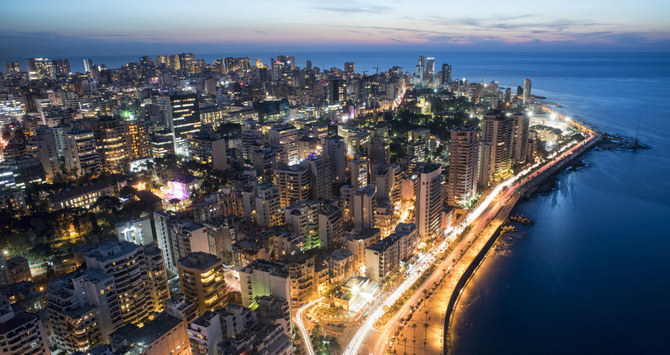BEIRUT: The US Ambassador to Lebanon Dorothy Shea met Lebanese Foreign Minister Nassif Hitti on Wednesday, as the country weighed the implications of the US Government’s Caesar Act, targeting people and businesses doing business with the regime of Syrian President Bashar Assad, for Lebanese companies operating in Syria.
Rumors have circulated in Lebanon regarding an appendix in the Caesar Act holding a list of Lebanese entities set to be penalized for cooperating with the Syrian regime.
It is unclear how the act will affect coordination between the Lebanese and Syrian militaries, as the two states share a border extending to nearly 375 kilometers. The future role of the Lebanese-Syrian Supreme Council, which coordinates relations between the governments of the two countries, is also unclear.
Hezbollah leader Hassan Nasrallah had called on the Lebanese people “not to submit to this act that aims to starve Lebanon and Syria.” In a speech, he said: “The Caesar Act harms Lebanon perhaps more than it harms Syria. Syria is (our) only passage toward the world, and what the Americans are trying to imply is that our only inland passage is Israel.”
Nasrallah added: “To those who will make us choose between killing with weapons or starvation, we will hold our weapons in our hands, we will not starve, and we will kill them.”
A Lebanese legal expert told Arab News that the act needed to be more closely examined to know for certain the effect it would have on Lebanon, but added that it did mean the US could impose sanctions. “The issue of sovereignty is not on the table and the decision-maker is the implementer. We have to look at this matter in real terms,” the expert said on condition of anonymity.
The programs director at the PeaceTech Lab in the US, Nizar Zakka, who worked on the Caesar Act, told Arab News that it protected Lebanon. “The Act will not include penalties for Lebanese personalities as rumored,” he said. “It is true that (the) Caesar Act is not an international law, but if we take a look at the sanctions against Iran, which are American and not international, we can sense the extent of the damage that Lebanon may know, if the act is overlooked.”
Zakka, who was arrested in 2015 by Iran on charges of espionage and not released until 2019, stressed: “The Caesar Act stands against crimes against humanity, (the sort) only witnessed during World War II and in Syria. This issue is sensitive. The act penalizes anyone who deals with the government because it considers it the government’s partner. We, in Lebanon, have never benefited from any deal that was carried out by the Syrian regime. They are one-way deals, but now the Lebanese people will benefit from the Caesar Act and one-way deals will stop.
“Smuggling from Lebanon to Syria does not benefit the Syrian people, but rather the Syrian regime. They want us to remain their hostages, at a time when the law liberates us and frees all who do not wish to cooperate with the Syrian regime, and I have worked to alter a large part of the Caesar Act in the interest of Lebanon. I have been wronged by Iran where I have been held hostage for four years, and I do not want any Lebanese to be wronged. This is my mission,” he added.
Zakka pointed out that the act would “not stand in the way of the security cooperation, nor drawing electricity from Syria, but any deal between a Lebanese person and the Syrian regime will not pass. There is a difference between the country and the regime. In Lebanon, they are trying to market that the act targets Syria. This is a mistake; it is targeting the Syrian (Assad) regime. The distortion of the act is prohibited.”
President Michel Aoun said on Wednesday: “The security services and customs have taken additional measures to stop all smuggling operations and at all levels, whether at land or sea crossings.”
Lebanon faces large-scale smuggling of various commodities from Lebanon to Syria, the most dangerous of which are dollars and subsidized materials from the Lebanese government, such as flour and diesel, at a time when Lebanon is facing a financial and economic crisis that puts it on the verge of bankruptcy.
Money exchange shops which are authorized to trade dollars from the Lebanese Central Bank were crowded, for the second day in a row, by citizens wishing to buy them, after the central bank sent cash to a restricted group of shops. It is not known whether these bills, that were purchased at a low price from the exchanges, were later on sold on the black market at a higher rate, or whether they were moved to Syria.
Economic analyst Violette Balaa warned in an interview with Arab News that: “The government’s policy of asking the Lebanese (people) to pump dollar bills into the market is not wise. The central bank’s reserves are being depleted in vain, with the continued transfer of dollar bills to Syria.”
Balaa called on the judiciary system “to act quickly, control the black market, and close the illegal crossings to stop the smuggling of funds.” She also warned “the repercussions of the Caesar Act will be costly to Lebanon’s economy and its liabilities. The policy of neutrality is required today more than ever to reduce the effects of this act, just as Jordan did when sanctions were imposed on Iraq.”






















